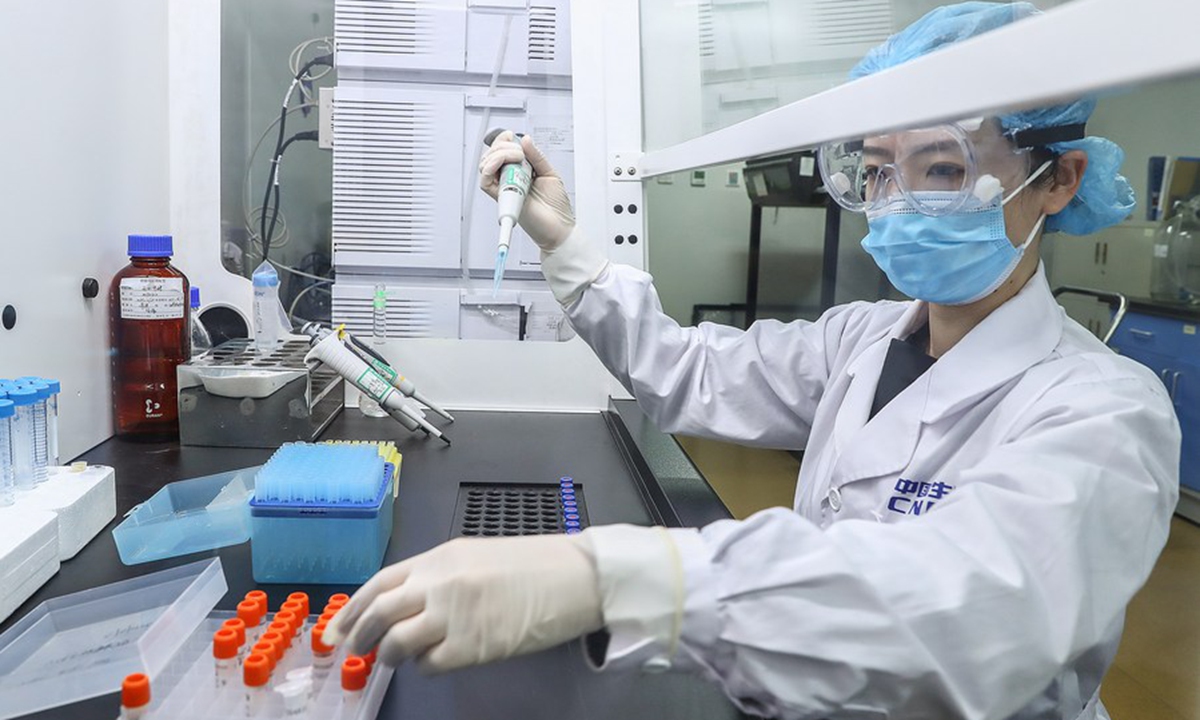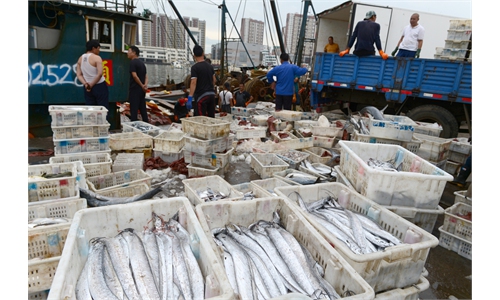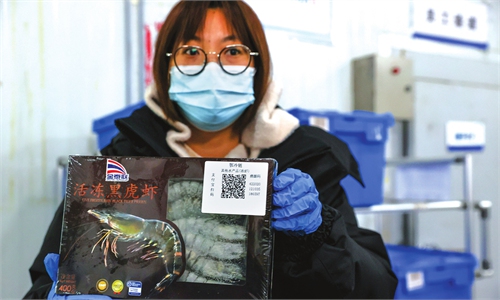
A staff member tests samples of the COVID-19 inactivated vaccine at a vaccine production plant of China National Pharmaceutical Group (Sinopharm) in Beijing, capital of China, April 11, 2020. (Xinhua/Zhang Yuwei)
China's capital city, Beijing, home to more than 20 million residents, has reported 13 local COVID-19 infections in three districts over the past two weeks. With tracing yet to determine the source of virus and transmission chain, experts are warning the public to remain alert as there may be multiple sources behind the resurgence.
Chaoyang district reported three cases between December 14 to December 18, including a patient returning from Hong Kong and two other related cases. Xicheng district reported an asymptomatic case on Wednesday, who works in the cold chain food industry. Shunyi district reported nine confirmed COVID-19 cases and asymptomatic infections, of which three are related to the cold chain food industry.
Unlike previous outbreaks, this outbreak has seen infections emerge in far apart districts in the sprawling city.
Cold chain stores have denied any of their products have tested positive for COVID-19.
A seafood restaurant where one of the patients was served said all of its imported fish tested negative for coronavirus and had been thoroughly disinfected. An online platform where one of the patients had purchased fresh products also said its products all tested negative.
"There are now multiple cases in Beijing without epidemiological links. There could be multiple sources, which is more worrying," Jin Dongyan, a virologist and professor at the University of Hong Kong's School of Biomedical Sciences, told China Newsweek. The public should remain cautious, and avoid possible super-spreader events.
"These cases must have been imported," said Feng Zijian, deputy director of the National Center for Disease Control and Prevention.
As for the need to upgrade prevention and control strategies, Feng said the current measures have proved to be very effective. "The focus is on how to implement the current measures. It's inevitable that individual imported cases will emerge from time to time."
Lu Hongzhou, secretary of the party committee of the Shanghai Public Health Clinical Center, said the focus should now be on preventing clusters cases caused, by enforcing various prevention and control measures more strictly, focusing on strengthening management at ports, international logistics and the cold chain, and by having relevant industry workers vaccinated as soon as possible.


